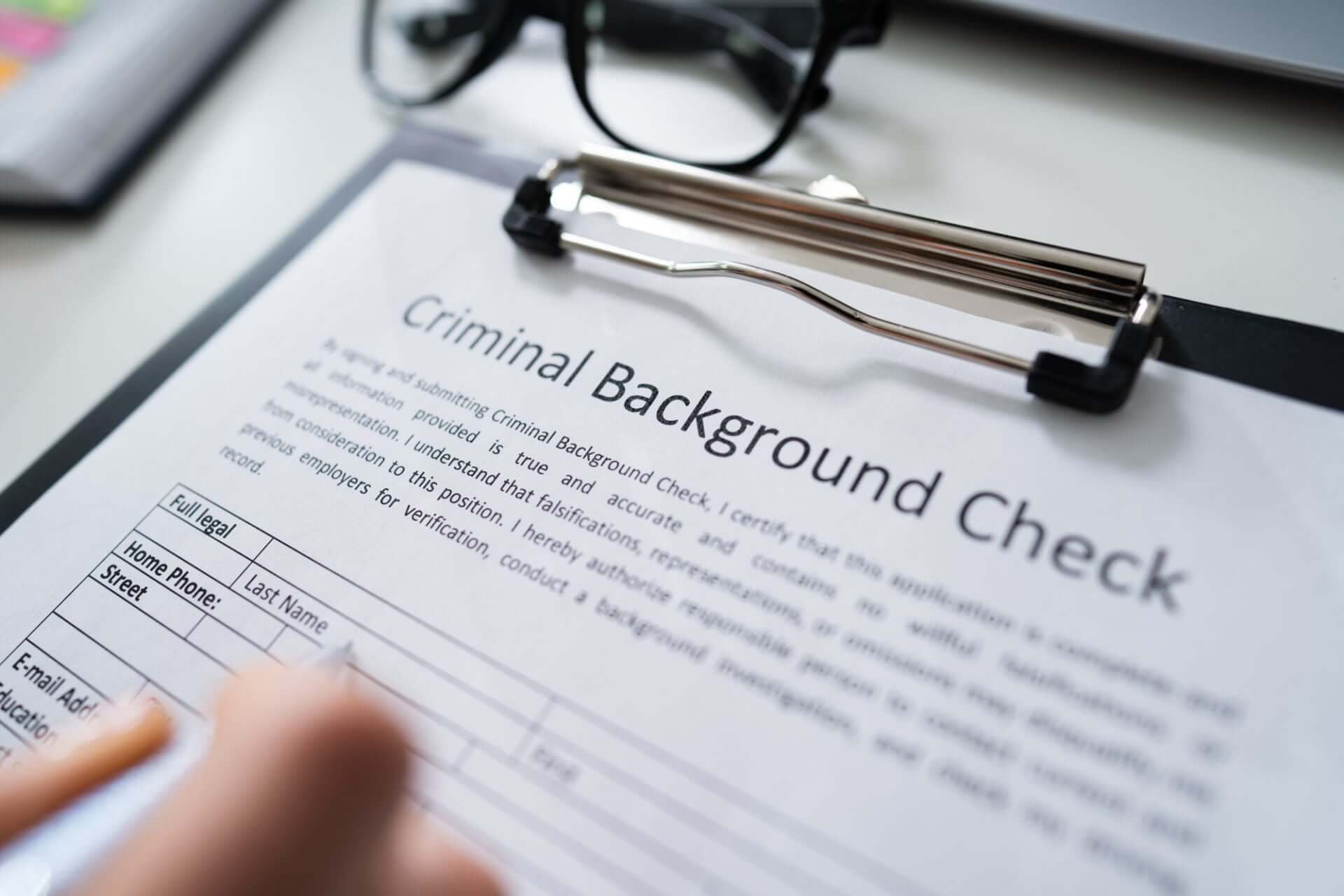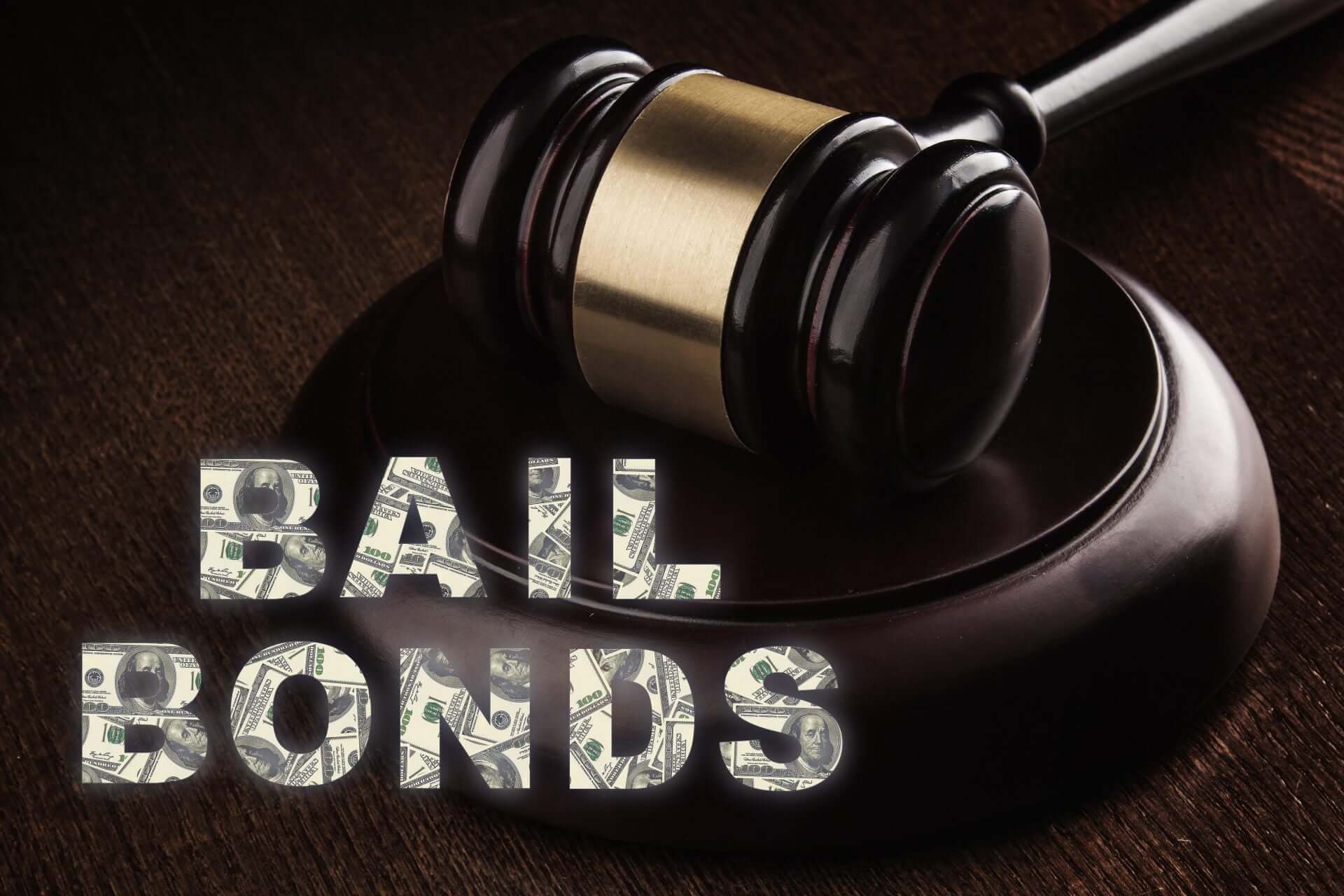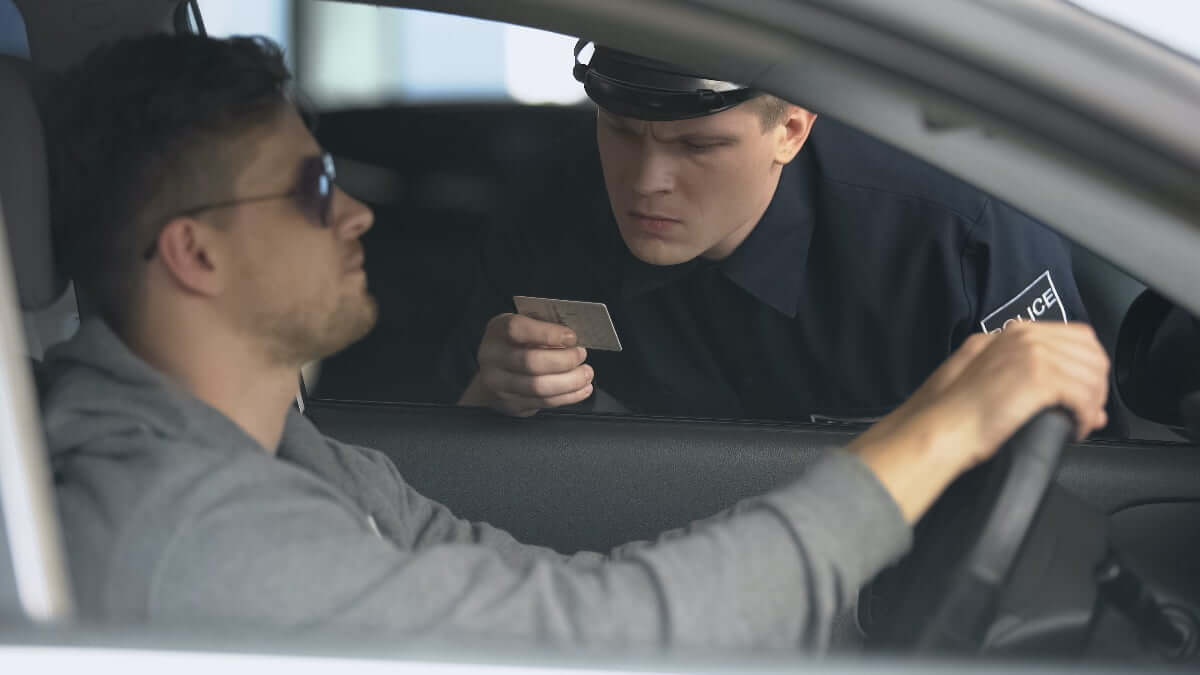Going to a court hearing can be nerve-racking. But we have listed some of the most important tips to make your experience smooth.
Finding a Job with a Criminal Record
Finding a job with a criminal record can be challenging, but it’s not impossible. There are certain industries that don’t perform background checks, such as food service and manufacturing. Build up your experience with volunteer work and network. You got this!
Top Bail Bonds Service in Lewisville, Texas
Getting arrested in Lewisville, Texas, is a stressful situation, especially when you don’t know what to expect. Delta Bail Bonds will provide a speedy release, and we can also guide you through the entire bail process.
Bail Bonds For Battery and Assaults Charges in Texas
If you or a loved one got into a fight or was otherwise an unfortunate part of an altercation, they could be taken into custody, and the court can set bail for their release. They could be facing battery and assault charges, and if you don’t want them sitting in jail while they’re waiting for their court date, you need to find a way to post their bail.
BATTERY AND ASSAULT IN TEXAS
Most states describe assault and battery separately, i.e., the former is defined as threatening bodily harm, while the latter implies bodily harm is actually inflicted. In Texas law, the two terms and their meanings both fall under the definition of assault.
In essence, assault can come in many different forms in Texas, but they boil down to the following situations:
- Causing bodily injury (intentionally, knowingly, or recklessly)
- Threatening someone with bodily harm (intentionally or knowingly)
- Causing offensive or provocative physical contact (intentionally or knowingly)
An assault with bodily injury is a crime that causes pain to the victim by the perpetrator. It doesn’t have to leave a mark on the victim’s body to be classified as such. Assault charges can range anywhere from misdemeanors to felonies.
A defendant can face an array of penalties for assault in the Texas criminal system depending on how serious the offense is and how the law classifies it. For example, a Class B misdemeanor can result in 180 days in jail or a maximum of a $2,000 fine.
On the other hand, assaults considered felonies can incur much more serious penalties. For example, a second-degree felony can result in ten years in jail or a fine of up to $10,000.
BAIL BONDS FOR THESE TYPE OF CHARGES
If you, your family member, or someone you love has been accused of an assaultive offense in Texas, you will be taken into custody and if you’re fortunate, face the bail bond process. The judge will determine the amount of bail you need to post in order to await your court hearing outside of jail. After the court appearance, you get the money back.
The defendant can pay the bail bond amount themselves. But if you’re unable to come up with the amount of cash necessary, you can also contact a bail bond company. Bail bondsmen post the bail for you for a small percentage of the bail as their fee.
DELTA BAIL BONDS CAN HELP
If you’re faced with a bail bond for battery and assault charges you cannot pay, we can help you out! At Delta Bail Bonds, we don’t discriminate. We treat our clients as human beings, regardless of any previous convictions or their criminal history.
You can contact us any time, and we’ll provide impeccable service. Your bail bondsman will keep you informed and give you useful advice on the best course of action. There’s no need for you to stay in jail, when we can bail you out and help you get ready for your court appearance.
How Is Bail Set in Texas?
There are plenty of things that can determine how a bail amount is set in the state of Texas. But first, it’s useful to know the basics of what bail is. Basically, it’s the sum of money you pay to be able to await trial at home. However, not all arrests can result in bail, and you won’t always be able to pay the bail amount yourself. So, let’s learn about how bail is set and what your options are.
Bail Depends on The Type of Arrest
When talking about the bail amount, it’s important to note that it won’t always be the same. Again, several factors will play a role here. However, the most important one is the severity of the crime. In the state of Texas, misdemeanors and less severe crimes can entail a bond ranging from $1,000 to around $3,000. On the other hand, suspected murders can warrant as much as $1,000,000. So, if you get arrested or if your loved one needs your help with bailing them out, you should be prepared and not surprised when you see a few more zeros on the check than you expected.
It’s Up to the Judge
Bail hearing is the time when you’ll be facing the judge. Usually, the bail amount will stay within the mentioned ranges. However, it’s really up to the judge to decide on the amount.
No two crimes can have the same circumstances. The judge will have to determine what they think is the appropriate punishment after hearing your side of the story. So, they can decide to keep you in jail until your trial, or you might be given the option to post bail to await trial from home. When it comes to less severe crimes, the judge will usually stick to setting bail, so jail time is something you shouldn’t worry about.
Bail Options
There are several things you can do when it comes to making bail. What most people opt for is having a family member post it for them. It works just as you would imagine it — someone you know will have to come and pay it for you.
Additionally, if your relatives cannot help you, you can look for a bail bond company. In that case, a bail agent will come and post the bail for you. Don’t forget that this only means that you’re able to wait for your court date out of jail. If you fail to appear in court, the judge can order another arrest.
Delta Bail Bonds Has Your Back
If you or anybody you know needs help paying their bail, we’re the right bail bondsmen to call. There are many different reasons why you should choose Delta Bail Bonds, namely convenience, assistance, confidentiality, and knowing the court system like the back of our hands. We will ensure that you and your loved ones have the best possible experience in such an unfortunate situation. So, contact us today, and let us help you out!
WHAT’S THE DIFFERENCE BETWEEN A PUBLIC DEFENDER AND A PRIVATE ATTORNEY?
At one point during pretrial, you’ll have to pick who will represent you. The typical choice is between a private attorney or a public defender. Who would represent you better? We’ll compare the two based on a few key criteria.
AFFORDABILITY
When it comes to affordability, public attorneys are the clear winner. The court appoints a public defender to you for free, so cost is not an issue. However, they’re usually unavailable to people who can afford to hire private legal services.
On the other hand, you have to pay a private attorney. How much you pay depends on a range of factors, such as your criminal charge, the length of the trial, your income, and more. Either way, it costs anywhere between $2,500 and $30,000 to hire an attorney.
EXPERIENCE
Naturally, you’ll want an attorney that has experience defending people with your charges. As far as criminal charges go, public defenders tend to have more experience. That said, you don’t get to pick your state-assigned criminal defense attorney, so you don’t have any control over who represents you (you can technically represent yourself, but that’s bad for a number of reasons).
There are also private attorneys with experience in criminal law. However, you’d have to carefully pick an attorney that’s specialized in that. Law firms typically have attorneys with diverse specialties, so finding the one for you shouldn’t be too much of an issue. In addition, private attorneys are usually more experienced when it comes to trials. They often handle several cases at a time, whereas public defenders often get a couple of cases per year.
AVAILABILITY
If your priority is to have someone with whom to work out your defense strategy, private attorneys are the superior option. Law firms routinely offer plenty of in-person consultations. If you’re out on bail (either through certain kinds of bail bonds or paid for in cash), this is great. That means you’re free to visit your attorney and devise a legal plan.
In contrast, public defenders don’t provide such a personalized service. They’re often too busy to meet outside of the courtroom for legal advice. Moreover, their job doesn’t depend on referrals, so they don’t need to nurture client relationships. Rest assured, though, that they’re legally bound to protect your rights to their best ability.
FINAL THOUGHTS: WHO’S ACTUALLY BETTER?
There’s no straight answer to this question. No data shows that one is better in the courtroom than the other. On the one hand, a public defender is clearly the inexpensive alternative. On the other hand, you get to work more closely with a private one. As such, the best choice depends on your circumstances and options.
DELTA BAIL BONDS
Deciding whether to settle for a public defender or hire a private attorney is a tough decision, especially if you are stuck behind bars when choosing. However, that doesn’t have to be the case. Delta Bail Bonds will get you out of jail quickly, so you can make a more informative decision. You’ll be able to meet with a private attorney or conduct research on a public defender. We’re available 24/7 and work tirelessly to make this stressful situation easier for you. Contact us right away to receive affordable bail bonds!
HAVE YOU VIOLATED YOUR BAIL CONDITIONS IN TEXAS?
Say you get your bail in the Lone Star State, and its conditions are both constitutional and proportional to the bail amount. However, for one reason or another, you fail to meet bail conditions. What happens then? Keep reading to find out.
3 COMMON RESULTS FOR BREACHING BAIL CONDITIONS
When a person breaks the bail conditions laid out to them, the following may happen:
- A bounty hunter finds you and takes you back into custody
- The court issues a bench warrant for you
- The police return you into custody
You might also forfeit all assets if you employed one of the many Dallas bail bond companies (or wherever in Texas you’re situated), depending on the extent of your violation. For example, failing to show up at court on time could lead to a loss of assets.
DON’T RUN AWAY FROM YOUR PROBLEMS
If you happen to break certain conditions of your bail, that isn’t a crime in and of itself. Should the court learn of what you did, you’ll be put back into custody. That said, you won’t have to answer for your violation as an offense (unlike the procedure for Texas parole violations, for instance).
However, deciding to resist being taken back into custody can negatively impact your case. Moreover, violating some conditions of your bail, such as appearing in court at a given date, is an offense. Don’t evade bounty hunters or the authorities once they catch wind of what you’ve done.
THE BEST THING TO DO AFTER BREAKING BAIL CONDITIONS
So what should you do once you violate your conditions?
It largely depends on a few things. For starters, you should always respect court dates. Doing otherwise can get you into more trouble. If you break other minor conditions and the authorities catch you doing so, keep your composure. Turn yourself in without resisting arrest in any way. That’ll go a long way toward minimizing the damage made to your case.
However, what if nobody realizes you’ve breached a bail condition? Sometimes, the police don’t arrest people who ignore certain bail conditions. If what you did was a relatively minor violation (like reporting to a probation officer), odds are the authorities won’t be barging through your door to drag you back to jail.
PREVENTION IS KEY
Preventing this situation from happening is the best route for your case. Respect the parameters of your bail to your best ability. In most instances, ignoring them can result in a worse legal outcome. You could end up with another offense. By following your bail conditions, you’ll appear as an upstanding citizen worth showing leniency toward.
DELTA BAIL BONDS
If you need any advice regarding your bail, contact Delta Bail Bonds. We’ll provide all the information and assistance you need to prevent further violations. We are available 24/7 every day of the year. Our team is professional, respectful, and efficient in what we do. One of our main priorities is making sure that the bail conditions are clear before any agreement is made, to ensure a smooth bail process.
Tips for Safely Interacting with Police
Everyone has a different experience when interacting with the police, but there’s always a common element – it can be quite frightening. Luckily, there are ways to increase your chances of having a safe police encounter. Here are a few pieces of advice you should follow when the police stop you.
Keep Your Hands Visible
Normally, the first instructions you hear will be to keep your hands visible. It’s extremely important to keep this in mind throughout the entire interaction. During a police encounter, you may feel nervous, anxious, fearful, or a combination of these emotions. Without even thinking, you may feel compelled to put your hands in your pockets or somewhere else the police officer may consider suspicious. To avoid any misunderstandings, always keep your hands visible.
Be Polite and Respectful
This is possibly one of the most effective ways to ensure your police interaction is a safe and calm experience. Regardless of if you’re innocent or guilty, remain polite and quiet when interacting with a police officer. If you don’t feel comfortable speaking to them or answering their questions (besides identifying yourself), calmly let them know that you would like to speak to your lawyer first. According to the law, the police officer should respect that request and wait until a lawyer is present.
Do Not Argue
Do not, under any circumstances, argue with the police. If you think they are wrong or mishandling the situation, either politely tell them that you would like to speak to your lawyer or comply with their instructions. Anything else may be considered resistance, which may cause the officer to escalate the situation. As a citizen, you have the right to remain silent until a lawyer is present. By law, you’re only required to identify yourself. It’s always safer to be silent instead of argumentative.
Don’t Make Sudden Movements
No matter how the police interaction is going, you should not make any sudden movements. Whether it’s quickly moving your hands or your whole body, you want to remain as still as possible and only make slow movements. Officers are trained to respond to sudden movements. During your police encounter, they’re watching your body language and overall tension. If you make any sudden movements, they will respond quickly and the situation will escalate.
Don’t Resist Arrest
Never resist arrest, even if you’re innocent. Instead, if you think the police officer is wrong, ask for your lawyer. Remember that the goal is to have a safe police encounter. In order to ensure maximum safety, you should comply with the police at all times. Once your interaction with the police is over, you can file a formal complaint against the officer, or the jurisdiction, for their mishandling of the situation.
Talk to Your Lawyer
Anything you say can and will be used against you in court. Only share details about your police encounter with your attorney, and be sure to ask them for advice on what you can and can’t say in public. This will ensure your safety after the police encounter and minimize the risk of anything being used against you in court.
Delta Bail Bonds
If someone you know is facing jail time after an arrest, Delta Bail Bonds can help. Our experienced bail bondsmen are available 24/7 to post bail for your loved one in any part of the country, and we’re always dedicated to giving you the fast, respectful service you deserve. Call or visit our website to get in touch with an experienced bail bondsman today!
Process After Arrest
Miranda Rights
Upon your arrest, the officer must inform you of your legal rights. The Miranda warning outlines your rights following an arrest:
- You have the right to remain silent
- Anything you say can and will be used against you in a court of law
- You have the right to an attorney
- If you cannot afford an attorney, one will be appointed for you
This means you can choose not to answer an officer’s questions and may request an attorney. Attorneys encourage you to take this right seriously because even the smallest details can incriminate you in court.
Processing
When you are arrested, you will be handcuffed and taken to the local police station for initial processing. At the precinct, a police officer will question you to get personal information. This will include your name, address, date of birth, social security number, etc. Once you have been fingerprinted you will be taken to a central booking location and processed for arraignment, which is an appearance before a judge.
Questioning
The Miranda warning must come before you are interrogated or questioned. Asking for your personal information is not considered an interrogation. Once police officers begin asking questions that may implicate you in a crime, however, an interrogation has begun. Information that you voluntarily offer to a police officer after receiving a proper Miranda warning is generally admissible in court. Police officers are not allowed to use physical or psychological intimidation to get you to make a statement.
Bail Hearing
After you are accused of a crime, you are required to appear in front of a judge for a bail hearing. During this hearing, the judge will decide whether you, the defendant, will get bail or if you will have to wait behind bars until your trial starts. Bail is a set amount that someone pays for you to temporarily get out of jail. By paying bail you agree to show up at all of your court dates and follow guidelines set by a judge.
Post bond
Once a judge sets your bail you can either pay the full amount upfront or turn to a bail bond company like Delta Bail Bonds. If you don’t have the money to post bail yourself, you can pay a bondsman 10% of the bail amount or collateral to get you out of jail.
Plea Bargain
The prosecutor and the defense lawyer can negotiate a plea deal or bargain. Once a plea bargain has been reached, it is taken to the judge for his or her approval. The judge will consider the plea deal as a contract between the prosecutor and the defendant. In federal court, the judge can approve or reject the plea bargain. The judge normally accepts the proposed plea deal.
Trial
The trial is the structured process where a jury listens to testimonies and reviews evidence to settle on a verdict. It’s up to them to decide if the defendant is innocent or guilty. During the trial, the prosecutor uses witnesses and evidence to prove to the jury that the defendant is guilty. Alternatively, the defendants attorney tries to prove their client’s innocence by calling witnesses and sharing evidence. During the trial, the judge decides what evidence an attorney can present to the jury. After the jury reaches a verdict, they notify the judge, the lawyers, and the defendant in open court.
Delta Bail Bonds
If you need to bail yourself or a loved one out of jail, Delta Bail Bonds is here to help. With us, you’ll be able to save money, keep your information confidential, save time, and have all the knowledge of an experienced bail bondsman at your fingertips. We know an arrest can be hard on you and your family, which is why we work 24/7 to make your bailout as quick and easy as possible.
History of Bail Bonds
Bail is a set of pre-trial guidelines that a defendant must agree to and an amount they must pay to make sure that they are present to stand trial before a judge agrees to release them from jail.
How did they get started?
This system of posting money or property in order to get a temporary release, pending a trial, dates back to 13th century England. The commercial practice of offering bail bonds arose out of a need to balance the playing field among the rich, middle, and lower classes. Previously, wealthy individuals were at an advantage because they could pay bail. Meanwhile, poor people without money to post bail couldn’t leave.
Bondsmen have been around in the United States since the country was founded. The laws about bail bonds have changed over the years. These laws have mostly addressed how to set bail fairly. Now, it’s mostly based on the crime the defendant has been charged with. Bondsmen have changed some practices according to individual state laws, but the basic concept is the same.
How are they different now?
The founder of the modern bail bond system as we know it was Pete McDonough. Pete, and his brother Tom, established the first known bail bond agency in San Francisco in 1898. McDonough was not a completely honest person, which may be why bail bondsmen receive such an unfavorable perception today.
In 1966, Congress enacted the Bail Reform Act of 1966. It expanded the bail rights of federal criminal defendants. Congress repealed the Bail Reform Act of 1966 with the Bail Reform Act of 1984. The new law permits pre-trial detention of individuals based upon their danger to the community, not solely upon the risk of flight. It stipulates that only people who are charged with a violent crime, an offense that may result in life imprisonment or death, drug offenses that may lead to a sentence of more than ten years, repeat felony offenders, or if the defendant poses a serious risk of flight, obstruction of justice, or witness tampering can be denied bail. A judge holds a special hearing to determine whether the defendant fits within these categories. Anyone outside of those parameters can bail out of jail. In cases where the defendant poses a risk to their communities, a judge must order pretrial detention
What can Delta offer defendants?
There are plenty of reasons why you should choose to do business with us, including the fact that we can bail you out of jail anywhere in the country! Delta Bail Bonds will not release any information about you or the person being detained. We also use secure data practices. You can rest assured that your personal information is in good hands.
We are available 24 hours a day, 365 days a year. You just need to give us a call and we’ll have your forms ready by the time you arrive at our location. We accept Cash, Visa, MasterCard, Discover, and ATM cards. We’re also happy to help you set up a payment plan if needed. If you or a loved one needs to get out of jail fast, Delta Bail Bonds is the team to call.
Posts navigation
Banner video popup
This will close in 0 seconds







